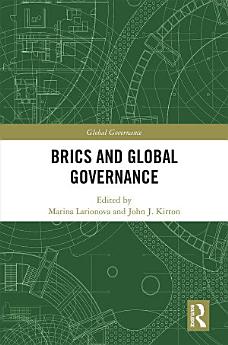BRICS and Global Governance
Tungkol sa ebook na ito
Addressing the BRICS’s role in global governance, this book critically examines the club’s birth and evolution, mechanisms of inter-BRICS cooperation, its agenda priorities, BRICS countries’ interests, decisions made by members, their collective and individual compliance with the agreed commitments, and the patterns of BRICS engagement with other international institutions. This volume advances the current state of knowledge on global governance architecture, the BRICS role in this system, and the benefits it has provided and can provide for world order.
This book will interest scholars and graduate students who are researching the rise and role of emerging powers, global governance, China and India’s approach to global order and relationship with the United States, Great Power politics, democratization as a foreign policy strategy, realist theory-building and hegemonic transitions, and the (crisis of) liberal world order.
Mga rating at review
Tungkol sa may-akda
Marina Larionova, Center for International Institutions Research (CIIR), Russian Presidential Academy of National Economy and Public Administration (RANEPA).
John J. Kirton, Munk School of Global Affairs, Trinity College, Department of Political Science, University of Toronto.





